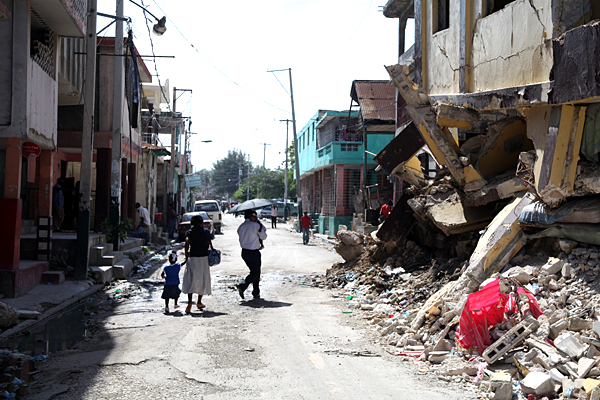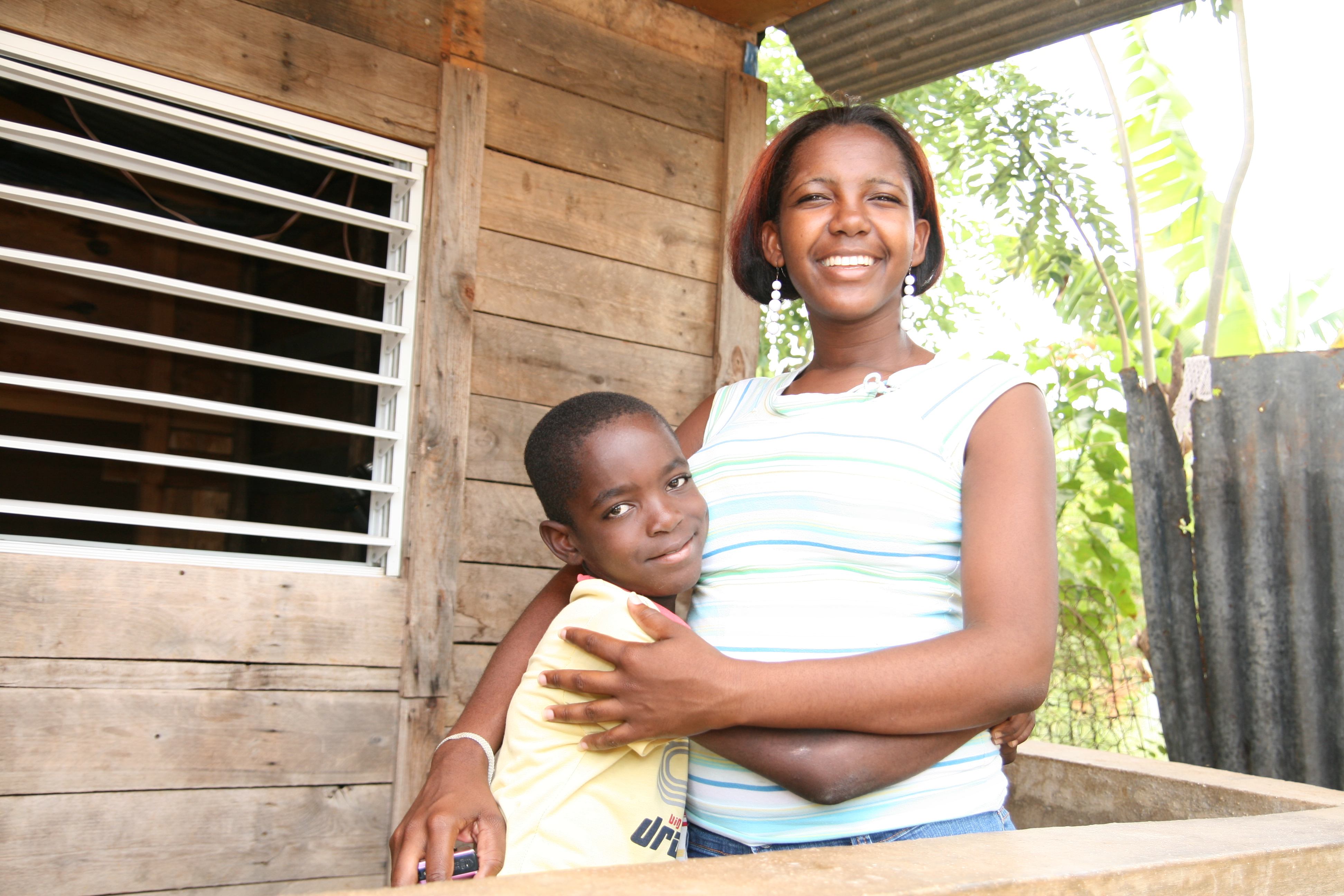
Haiti After the Quake
Presented by The Pulitzer Center on Crisis Reporting and
The George Washington University School of Media and Public Affairs
Join award-winning poet Kwame Dawes and journalists William Wheeler, Lisa Armstrong, and Stephanie Hanes in conversations on a range of issues including reconstruction, public health, human rights, and resilience.
Location:
George Washington University
Room B-12, Elliot School of International Affairs
1957 E St NW Washington, DC 20052
Nearest Metro Stop: Foggy Bottom/ Orange or Blue lines
Free admission
RSVP to attend "Haiti, After the Quake"
Panelists:
Kwame Dawes: Dawes is the author of over dozen collections of verse, and numerous plays, essays and books. He is the Distinguished Poet in Residence, Louis Fry Scudder Professor of Liberal Arts at the University of South Carolina. His poetry is the cornerstone of the Pulitzer Center's award-winning multimedia reporting project Hope: Living and Loving with HIV in Jamaica and the accompanying Emmy-winning www.livehopelove.com. His current Pulitzer Center project After the Quake: HIV/AIDS in Haiti explores how Haitians infected and affected by HIV/AIDS have been living since the January 2010 earthquake. Dawes is also programming director of the annual Calabash International Literary Festival in Jamaica, and Founder/Executive Director of the South Carolina Poetry Initiative.
William Wheeler: Wheeler has reported on political affairs from East Africa, South and Southeast Asia, Haiti, and the Middle East. His current Pulitzer Center project Haiti's Reconstruction: Building Back Better follows the international nation-building effort to reconstruct a stronger, more sustainable country. Previously for the Pulitzer Center, Wheeler spent six months reporting on the politics of water and climate change in South Asia with his journalist partner Anna-Katarina Gravgaard. Their print and multimedia work appeared in diverse outlets such as Foreign Affairs, TIME, Global Post, The Washington Times Magazine, Caravan Magazine, GOOD Magazine, and World Politics Review. Wheeler's story on geopolitical tensions over the Indus River won an Earth Journalism Award at the 2009 climate summit in Copenhagen.
Lisa Armstrong: Armstrong is an award-winning journalist with credits in several publications, including The Washington Post, National Geographic, Parade, Ms., Essence, Redbook, USA Weekend and O, The Oprah Magazine. She recently won an award from the American Society of Journalists and Authors for an article about a Kenyan village formed by women allegedly raped by British soldiers. Armstrong is also an adjunct professor at the CUNY Graduate School of Journalism. She is working with Dawes and photojournalist Andre Lambertson on the Pulitzer Center project After the Quake: HIV/AIDS in Haiti and as well as on Resilience in a Ravaged Nation: Haiti, After the Earthquake. Armstrong has master's degrees in journalism and in urban planning with a concentration in international development.
Stephanie Hanes: Hanes is a freelance reporter whose work has appeared in more than a dozen national publications, including Smithsonian Magazine, the Christian Science Monitor, Africa Geographic, and USA Today. A former staff reporter at The Baltimore Sun, Hanes moved to Johannesburg, South Africa where she lived for four years. Reporting from Rwanda, Zimbabwe and Mozambique, she worked with the Pulitzer Center on a series of stories about the environmental impact of human conflict and later won an Alicia Patterson journalism fellowship to continue her reporting in and around the Gorongosa National Park in Mozambique. Now back based in Baltimore, her current Pulitzer Center project Dominican Republic: Life on the Margins explores the challenges Haitians face in the Dominican Republic including issues of statelessness and migrants' rights.
Mark Asquino (Moderator): Asquino is the Senior Public Diplomacy Fellow at George Washington's School of Media and Public Affairs.From 1975-1976, he was the Fulbright Lecturer in American Studies at the University of Oviedo in Spain. Mr. Asquino began his extensive Foreign Service career with the U.S. Information Agency in 1978. His overseas assignments include Public Affairs Junior Officer Trainee at U.S. Embassy Caracas and Assistant Press Officer, U.S. Embassy Panama City. From 1999-2002 Asquino served as Public Affairs Officer at U.S. Embassy Tashkent. In the wake of the September 11 attacks, Uzbekistan became a front-line state that the U.S relied upon for assistance to Operation Enduring Freedom (OEF) in Afghanistan. Before coming to George Washington as the Senior Public Diplomacy Fellow, Mr. Asquino was the Deputy Chief of Mission at the U.S. Embassy in Khartoum, Sudan.
The George Washington University is one of the newest members of the Pulitzer Center Campus Consortium.

The people of Port-au-Prince will forever measure their lives in two parts: before and after the...

Some of the most marginalized people in the Caribbean are Haitian immigrants, and their descendents...





